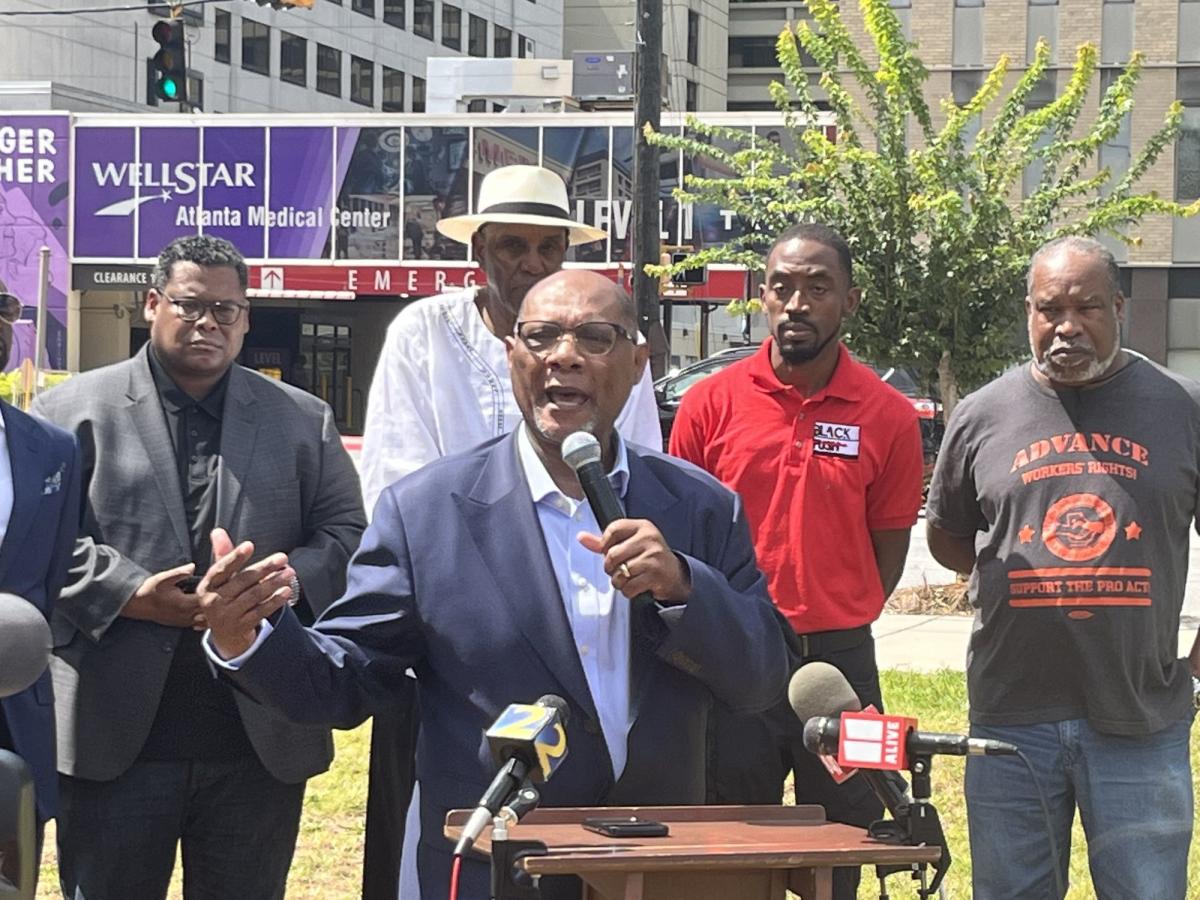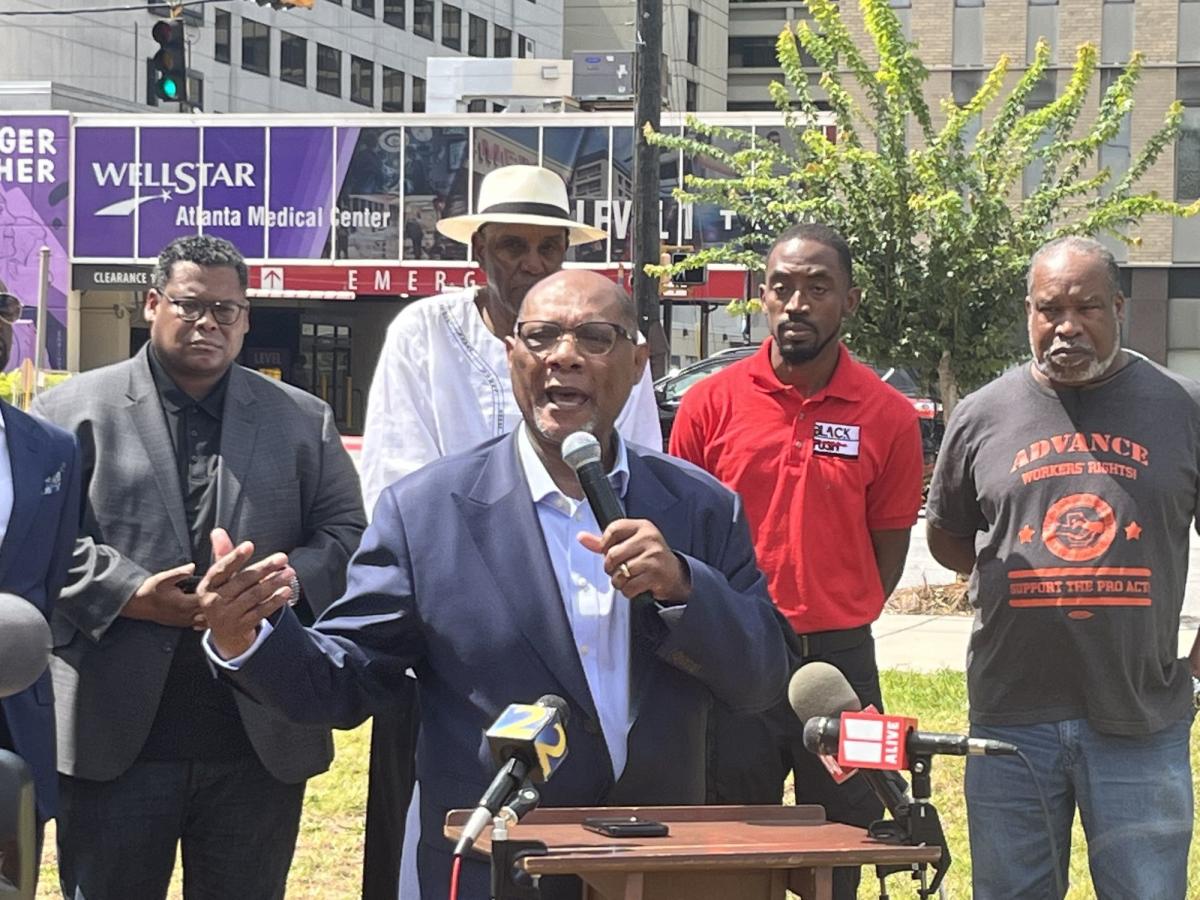
(Bloomberg) — The Atlanta Medical Center sits on a vast stretch of urban land, just one mile south of Ponce de Leon Avenue — the street that segregationists over a century ago designated as the dividing line between Black and White Atlanta.
Most Read from Bloomberg
That distinction was palpable on Thursday, when a group of Georgia religious leaders held a press conference outside the hospital, calling on Governor Brian Kemp to meet with them, and find a way to stop the planned closure of the 120-year-old medical center, along with others like it in the state.
“Let’s be honest, this is about devaluing Black and Brown and poor people,” said Reverend Shanan Jones, president of Concerned Black Clergy of Atlanta. “Their lives are expendable. Their lives don’t matter.”
Wellstar Health System, which operates 10 hospitals and dozens of other health care facilities across Georgia, announced earlier this month that it will close Atlanta Medical Center on Nov. 1, leaving the city with 460 fewer hospital beds, and only one hospital that can handle the most serious medical emergencies. Since 2018, Georgia has lost at least six hospitals, mostly in rural areas. The state of about 10 million people now has just four medical facilities capable of handling the worst trauma.
The issue looms large for Kemp, who is facing a rough re-election campaign this fall. His Democratic opponent, Stacey Abrams, last week blamed the incumbent governor for refusing to expand Medicaid, a move that she says has helped to stabilize health care systems in other states, and one that Abrams has promised to take if she’s elected in November.
At his own press conference at the state Capitol on Thursday, Kemp announced $130 million in state dollars to increase the capacity of Grady Hospital — the area’s other Level One trauma center that’s also a safety net hospital for the poor — by over 200 beds. The funds are coming from the American Rescue Plan Act, the federal Covid-19 relief money that Kemp had earlier opposed. Kemp said that Grady will also get an additional $130 million due to a funding formula change for insurance plans worked out in July, as well as add 24 patient rooms. “These are not band-aid solutions,” Kemp said.
The governor’s announcement “is not sufficient” said Rev. Lee May, who heads the DeKalb Pastors Christian Alliance. “Where band-aids are concerned, I guess they did a good job. But it is a temporary resolution.”
Stroke, Gunshots
Wellstar has run the hospital since 2016, and its 24-hour emergency room is staffed to handle comprehensive treatment for heart attacks, strokes, gunshot victims and other serious conditions. In recent days, the only survivor of an Aug. 22 triple shooting in Midtown Atlanta has been cared for at the facility. When the closing was announced two weeks ago, Wellstar said that the Atlanta Medical Center had “for several years” operated with “significant losses.” Last year, the facility lost more than $100 million. Wellstar declined further comment when contacted by Bloomberg.
“The issue is not just about Wellstar and Atlanta,” said Bishop Reginald T. Jackson, who presides over more than 500 of Georgia’s African Methodist Episcopal churches. “This issue is a statewide problem.”
Atlanta Mayor Andre Dickens wrote a Sept. 9 letter to Wellstar Chief Executive Candice Saunders, saying that the closure “will most adversely impact low-income populations in the metro Atlanta community.” Dickens said that the company’s earlier closure of a medical center in south Atlanta hurt the surrounding population.
If Wellstar goes through with the planned November closure of Atlanta Medical “this will be one of the greatest crime scenes in the history of Georgia,” said Jones, of the Concerned Black Clergy of Atlanta. He spoke just a few hundred yards away from where helicopters land to rush patients into the hospital’s emergency room.
‘My Home’
One employee of the medical center, Johnnie Jones, said that she has worked for 11 years as a care provider in general surgery, and that the hospital offered good treatment to her dying mother, and is a lifeline to a community in dire need.
“Look across the street, there are homeless men with flies flying around them,” she said. “Look down the street, homeless women are down there with no clothes on. This is more than just the closure of this hospital. This is my home.”
Most Read from Bloomberg Businessweek
©2022 Bloomberg L.P.




